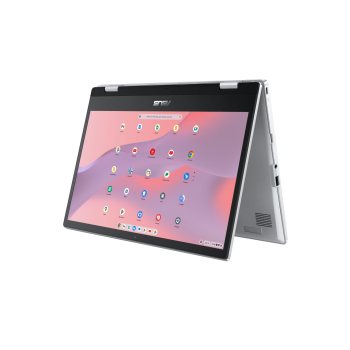When it comes to choosing a laptop, there are numerous options available in the market. Two popular choices among consumers are the Google Pixelbook Go and the HP Chromebook 14. Both of these devices fall under the category of Chromebooks, which are known for their affordability, portability, and ease of use. In this comparison, we'll delve into the features, specifications, and overall performance of these two laptops to help you decide which one suits your needs.
Design and Display
The Google Pixelbook Go is a premium-looking device with a sleek and compact design. It features a 13.3-inch Full HD touchscreen display with a resolution of 1920 x 1080 pixels. The laptop's body is made of magnesium alloy, which provides durability and lightweight portability. On the other hand, the HP Chromebook 14 has a more budget-friendly design with a plastic body. It features a 14-inch HD display with a resolution of 1366 x 768 pixels.
Performance
In terms of performance, the Google Pixelbook Go is powered by Intel Core i5 and i7 processor options, making it suitable for demanding tasks like photo editing and video streaming. The laptop also comes with up to 16GB of RAM and 256GB of storage, ensuring smooth multitasking and ample storage space. The HP Chromebook 14, on the other hand, is powered by Intel Celeron and Pentium processor options, which are more suited for basic tasks like browsing, emailing, and word processing. The laptop comes with up to 8GB of RAM and 64GB of storage.
Battery Life
The Google Pixelbook Go has a battery life of up to 12 hours, making it an excellent choice for users who need a device that can last throughout the day. The HP Chromebook 14, on the other hand, has a battery life of up to 9 hours and 15 minutes.
Software
Both laptops run on Google's Chrome OS, which provides a seamless and intuitive user experience. Chrome OS is designed specifically for web-based applications, making it an excellent choice for users who rely heavily on Google Drive, Gmail, and other cloud-based services. As one of the google laptops, the Pixelbook Go offers a more integrated experience with other Google devices and services.
Price
The HP Chromebook 14 is generally priced lower than the Google Pixelbook Go, making it an attractive option for budget-conscious buyers. The starting price of the HP Chromebook 14 is around $250, while the Google Pixelbook Go starts at around $649.
Conclusion
In conclusion, the Google Pixelbook Go and the HP Chromebook 14 cater to different needs and budgets. If you're looking for a premium Chromebook with excellent performance, display, and battery life, the Google Pixelbook Go is an excellent choice. As one of the google laptops, it offers a seamless experience with other Google devices and services. However, if you're on a tight budget and need a basic laptop for everyday tasks, the HP Chromebook 14 is a great option. Ultimately, the decision between these two laptops depends on your specific needs and preferences.


























